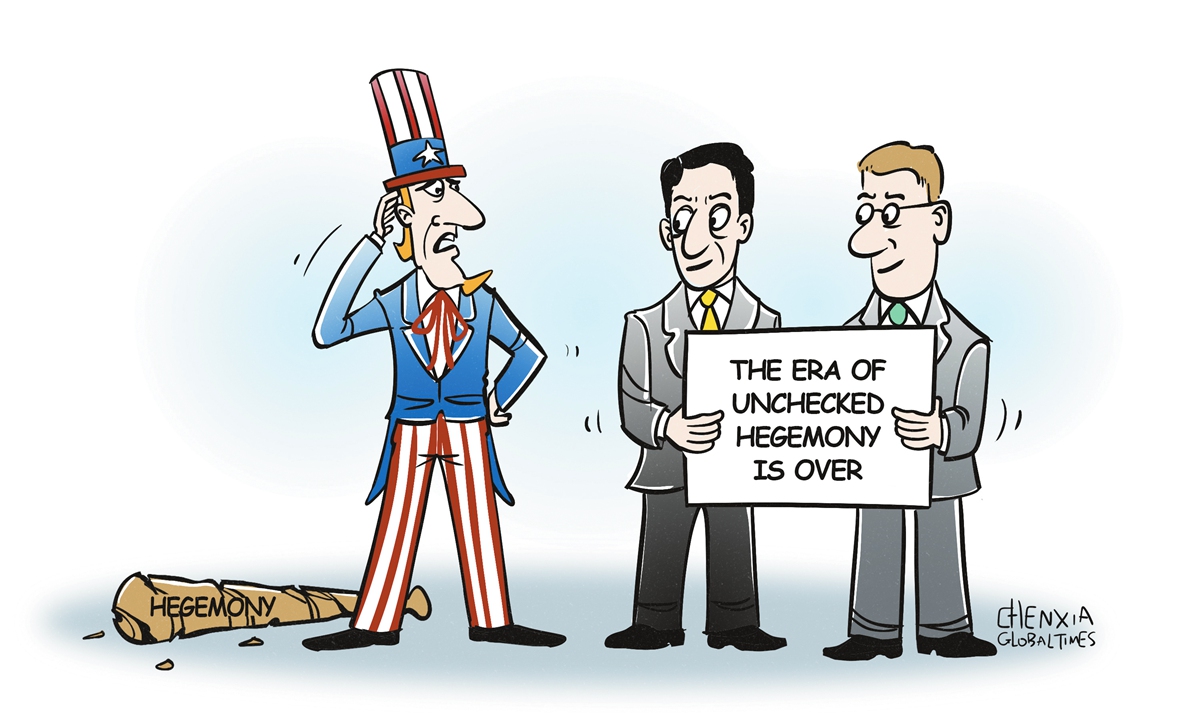
Illustration: Chen Xia/GT
In recent days, US President-elect Donald Trump has threatened to take the Panama Canal back into US control, accusing Panama of "ripping off" the US by charging high shipping rates.Panama, a small but strategically significant nation, has shown remarkable courage in resisting Trump's claims. Panama President José Raúl Mulino, in a sharp rebuke, called such remarks "nonsense," stressing that "The canal is Panamanian and belongs to Panamanians. There's no possibility of opening any conversation around this reality," as reported by the BBC.
The world is no longer a boxing ring where brute strength determines the winner. It is a complex, interconnected stage where big and small nations assert their sovereignty and demand respect.
The Panama Canal is not just a vital artery of global trade, it is a symbol of Panama's hard-won sovereignty. Since the canal was handed over to Panama in 1999, the country has managed it efficiently and professionally.
The canal is not just an economic lifeline for Panama but also a point of national pride - a testament to its ability to govern its affairs without external interference.
The claims of US regaining control of the Panama Canal ignore decades of history and international consensus recognizing Panama's rightful canal control. Such rhetoric refers to a bygone era when the US could impose its will on smaller nations unilaterally. In a world that has moved beyond the simplistic binaries of power and dominance, it is also a stark reminder of how deeply some US politicians remain entrenched in an outdated worldview.
The canal issue extends beyond mere financial benefits. Historically, the canal has been deeply tied to US' national interests, serving as a powerful tool for political leaders to rally public sentiment. It also aligns closely with the "America First" agenda. However, the Panama Canal is not a colonial trophy to be reclaimed. It is a sovereign asset of the Panamanian people, and any attempt to undermine that sovereignty is an affront to international law and modern norms of statecraft.
Attempt to "Make America Great Again" (MAGA) through hegemonic practices is neither feasible nor sustainable. Such an approach not only fails to bring real benefits to the US but also represents one of the most significant challenges the nation faces today.
Proposal to retake the Panama Canal is not just a misinformed comment about a specific geopolitical issue; it is a window into a broader worldview that seeks to reassert American hegemony under the guise of national greatness. In this context, MAGA becomes "Make American Hegemony Great Again." This vision is fundamentally at odds with the realities of the 21st century, where respect for sovereignty and multilateral cooperation is paramount.
The world has moved on from the era of unilateral dominance. Today, even small nations like Panama can assert their rights and demand respect on the global stage. It is not because they wield military or economic power comparable to that of the US, but because the international system has evolved to value sovereignty, cooperation, and mutual respect.
President Mulino's response not only defended Panama's rights but also sent a message to the world: the era of unchecked hegemony is over.


